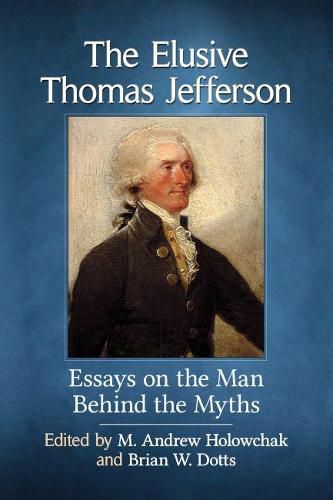Readings Newsletter
Become a Readings Member to make your shopping experience even easier.
Sign in or sign up for free!
You’re not far away from qualifying for FREE standard shipping within Australia
You’ve qualified for FREE standard shipping within Australia
The cart is loading…






This title is printed to order. This book may have been self-published. If so, we cannot guarantee the quality of the content. In the main most books will have gone through the editing process however some may not. We therefore suggest that you be aware of this before ordering this book. If in doubt check either the author or publisher’s details as we are unable to accept any returns unless they are faulty. Please contact us if you have any questions.
Jefferson’s writings on morality and the moral sense have typically been ignored by scholars. Why? His thoughts, never fleshed out fully in any formal work, are said to be unsystematic, inchoate, or confused. Evidence of that is his change of mind from a mostly Stoic moralist (where intentionality is critical) to an Epicurean/Utilitarian (where consequences are critical) later in life.
Jefferson was not confused and his moral thinking was systemic and consistent, not fluctuant. Though he never made the moral sense the topic of a formal, published treatise, his writings and the moral works he read and recommended allow for more than a general sketch of what the moral sense is and how it functions. In addition, they allow us to say much on his views of good living.
Thus, Jefferson was fundamentally a moralist, not a politician. He had large regard for morality and for personal moral improvement, and utmost respect for moral exemplars. And so, morality for Jefferson was something to be integrated into everyday life, not something to be read to pass the time, and Jefferson drew moral inspiration from moralists, sermonizers, novelists, poets, historians, and even role models such as Professor William Small and his friend in law, George Wythe.
$9.00 standard shipping within Australia
FREE standard shipping within Australia for orders over $100.00
Express & International shipping calculated at checkout
This title is printed to order. This book may have been self-published. If so, we cannot guarantee the quality of the content. In the main most books will have gone through the editing process however some may not. We therefore suggest that you be aware of this before ordering this book. If in doubt check either the author or publisher’s details as we are unable to accept any returns unless they are faulty. Please contact us if you have any questions.
Jefferson’s writings on morality and the moral sense have typically been ignored by scholars. Why? His thoughts, never fleshed out fully in any formal work, are said to be unsystematic, inchoate, or confused. Evidence of that is his change of mind from a mostly Stoic moralist (where intentionality is critical) to an Epicurean/Utilitarian (where consequences are critical) later in life.
Jefferson was not confused and his moral thinking was systemic and consistent, not fluctuant. Though he never made the moral sense the topic of a formal, published treatise, his writings and the moral works he read and recommended allow for more than a general sketch of what the moral sense is and how it functions. In addition, they allow us to say much on his views of good living.
Thus, Jefferson was fundamentally a moralist, not a politician. He had large regard for morality and for personal moral improvement, and utmost respect for moral exemplars. And so, morality for Jefferson was something to be integrated into everyday life, not something to be read to pass the time, and Jefferson drew moral inspiration from moralists, sermonizers, novelists, poets, historians, and even role models such as Professor William Small and his friend in law, George Wythe.